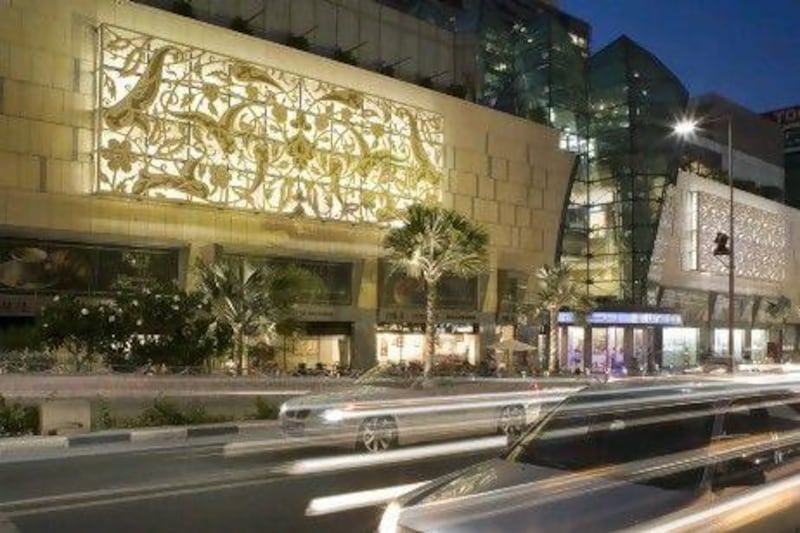The retail market is becoming so congested in Dubai some malls should be redeveloped or torn down, warns Jones Lang LaSalle, a global property specialist.
Shopaholics:
Industry Insights Get the scoop on what's happening in the retail world. Learn More
Craig Plumb, the company's head of research in the Middle East and North Africa, said about 30 per cent of malls in Europe were obsolete and Dubai was also in danger of reaching saturation point in the next few years.
"There will be a significant proportion of retail that needs to be repositioned, knocked over or a combination of the above," he said. "Some of this is just the maturing of the market. In the UK and Europe there's been lots of malls converted to other uses."
His warning comes on the back of news that the Al Habtoor Group is to demolish the Metropolitan Hotel, one of the oldest in Dubai, and redevelop the space next year.
Mr Plumb said some malls will eventually have to follow that lead.
Retail space has increased 60 per cent in Dubai since 2005, according to Jones Lang LaSalle, and the per capita mall space is almost double the level in Abu Dhabi, which has the second-highest rate in the Middle East. The rapid development of the retail and hospitality sectors has helped to elevate Dubai to a major global destination for shopping and tourism, but the speed of the expansion has also left some older developments behind.
This is particularly prevalent in retail where, following the success of Dubai Mall and Mall of the Emirates, many smaller, older players are having to quickly adapt.
Al Ghazal Mall, a shopping centre in Satwa, lies only a few kilometres from Dubai Mall and has been hit by falling numbers of visitors - and having to offer much-reduced rents - in the past few years.
The retail mix at Al Ghazal is being completely reworked, with fewer but bigger stores that serve the community, including a dentistry, a doctor's surgery, an eye specialist, a phone-repair shop and a Lebanese restaurant.
A Carrefour Market convenience store was added 18 months ago. "When you look at Dubai, it now has fantastic, huge shopping centres, so we thought 'how can we compete with those?'" said David Zlatarich, the head of property management at Colliers International, which leases Al Ghazal Mall. "We thought that we should turn it into a community-service centre, with retailers that are providing a service."
He said the revamped centre would be 100 per cent leased in the next few months.
But other malls are not taking the same approach in trying to differentiate themselves.
On the contrary, in order to compete with the big regional malls, some of the older centres are actually increasing space, rather than repositioning stores or downsizing.
Al Ghurair Mall, built in 1981 and Dubai's oldest mall, is spending Dh2 billion (US544 million) in nearly doubling its size and adding a hotel.
BurJumanmall, meanwhile, is increasing its space by 25 per cent.
rjones@thenational.ae





